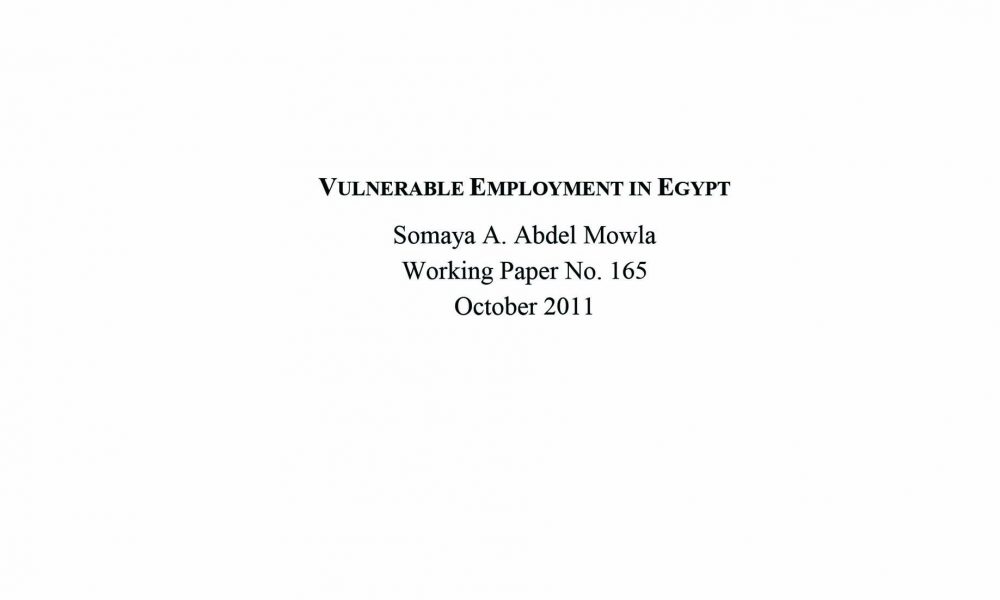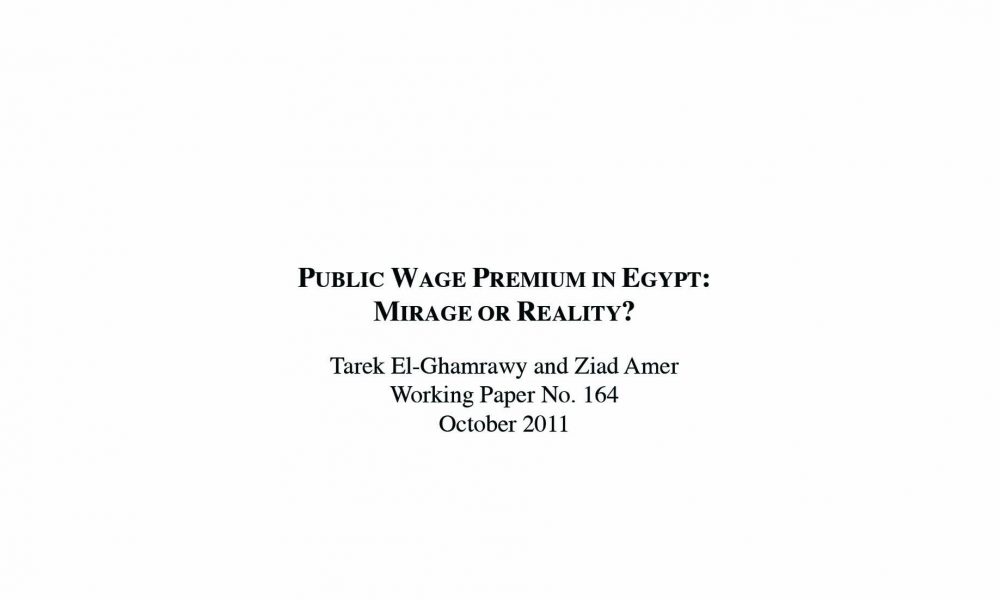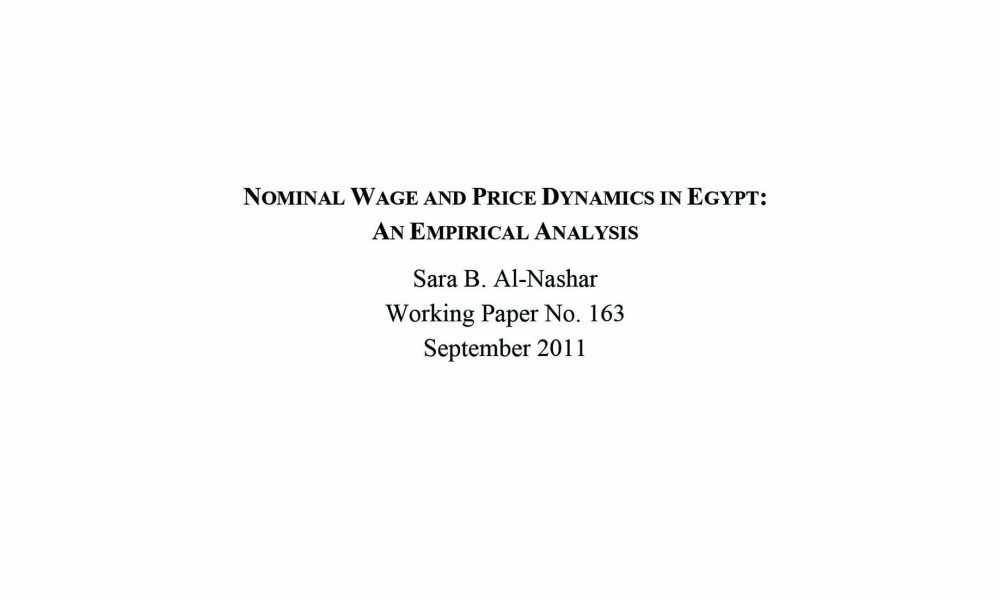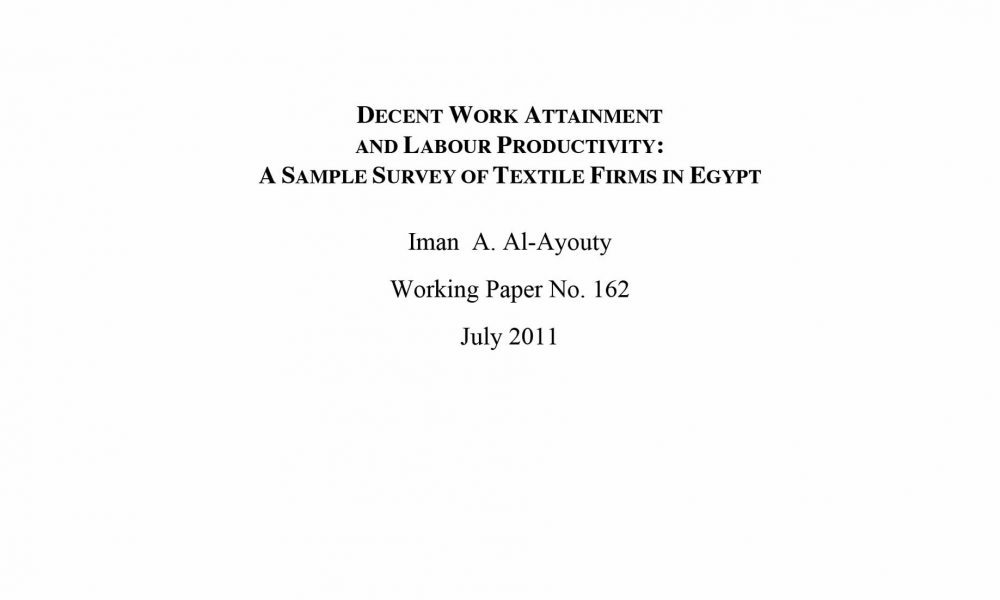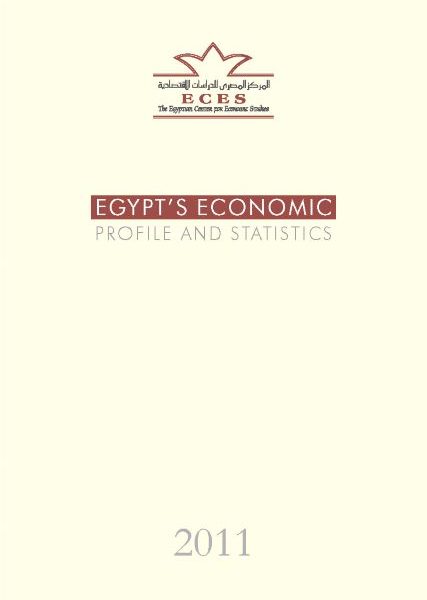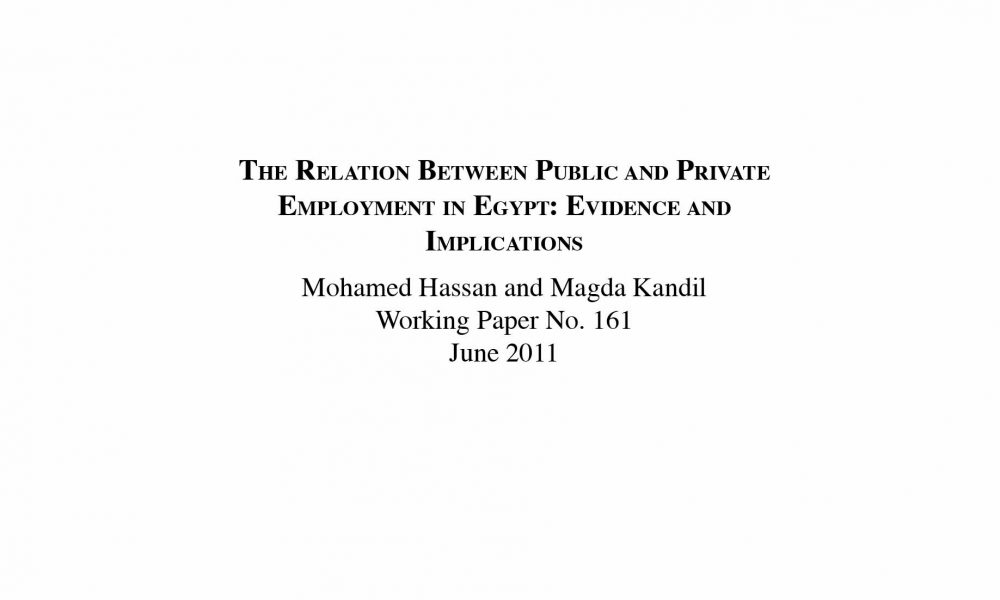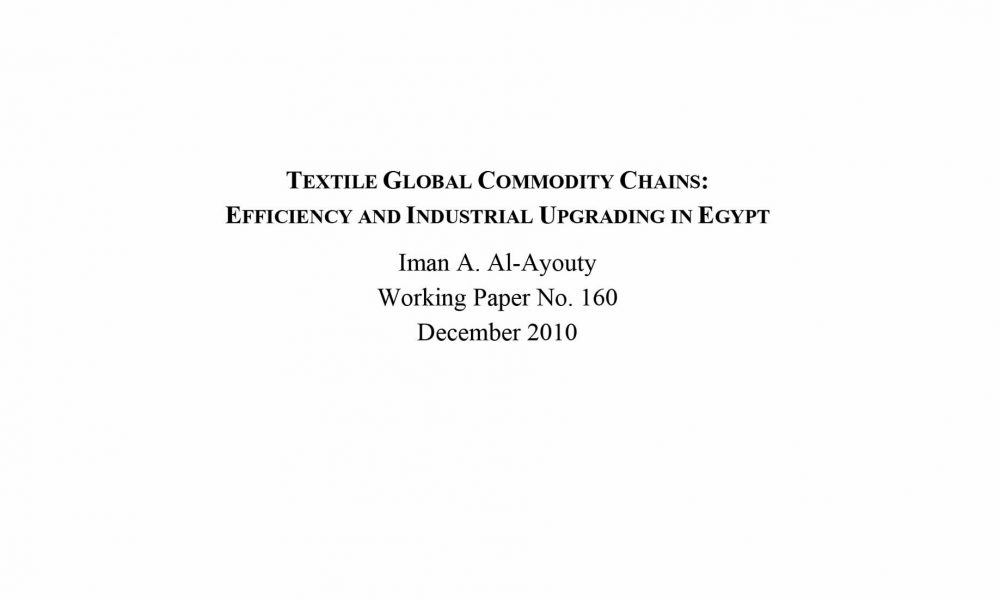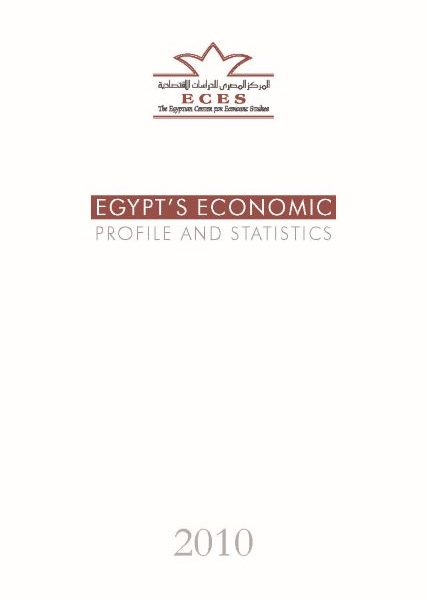Abstract: Contrary to economic intuition, public sector wages appear in the data to be higher on average than private sector wages. This paper investigates the validity and reasons behind this finding through an analysis of the ELMPS 2006 dataset. More importantly, the paper attempts to identify wage determinants in the public and the private sectors […]
Abstract: This study aims to explain how nominal wages in the private and public sectors in Egypt behaved in response to changes in domestic prices during the period 1985–2009. A vector error correction model (VECM) is estimated to investigate the short-run dynamics among nominal wages, and the urban consumer price index (CPI), while accounting for […]
Abstract: This study explores the effect of decent work attainment on labour productivity in Egypt, using a sample survey of 50 textile and apparel firms employing 50 or more persons. These firms belong to an industry that is a primary contributor to employment, exports, output and value added in the manufacturing sector at large. Closed […]
Intended mainly for investors and the business community, this annual publication provides summary data and information on the various aspects of the Egyptian economy.
Abstract: Job creation is the most important challenge facing Egypt today. Economic performance has been uneven over the last three decades, but even in periods of high growth, the job content of growth has not been strong enough to absorb new entrants. The 1990s and early 2000s saw the acceleration of structural adjustments. The fast […]
Abstract: The present study explores the implications of engagement in global commodity chains for the productive efficiency, industrial upgrading and exports of Egypt’s textile and apparel (T&A) firms, particularly in view of Egypt’s long standing Cooperation/Association Agreements with the European Economic Community/European Union spanning the period 1977 to date. Using a balanced panel of 116 […]
Intended mainly for investors and the business community, this annual publication provides summary data and information on the various aspects of the Egyptian economy.


